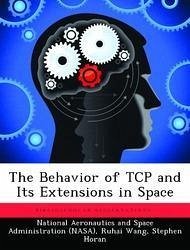Nicht lieferbar

The Behavior of TCP and Its Extensions in Space
Versandkostenfrei!
Nicht lieferbar
The performance of Transmission Control Protocol (TCP) in space has been examined from the observations of simulation and experimental tests for several years at National Aeronautics and Space Administration (NASA), Department of Defense (DoD) and universities. At New Mexico State University (NMSU), we have been concentrating on studying the performance of two protocol suites: the file transfer protocol (ftp) running over Transmission Control Protocol/Internet Protocol (TCP/IP) stack and the file protocol (fp) running over the Space Communications Protocol Standards (SCPS)-Transport Protocol (...
The performance of Transmission Control Protocol (TCP) in space has been examined from the observations of simulation and experimental tests for several years at National Aeronautics and Space Administration (NASA), Department of Defense (DoD) and universities. At New Mexico State University (NMSU), we have been concentrating on studying the performance of two protocol suites: the file transfer protocol (ftp) running over Transmission Control Protocol/Internet Protocol (TCP/IP) stack and the file protocol (fp) running over the Space Communications Protocol Standards (SCPS)-Transport Protocol (TP) developed under the Consultative Committee for Space Data Systems (CCSDS) standards process. SCPS-TP is considered to be TCP's extensions for space communications. This dissertation experimentally studies the behavior of TCP and SCPS-TP by running the protocol suites over both the Space-to-Ground Link Simulator (SGLS) test-bed and realistic satellite link. The study concentrates on comparing protocol behavior by plotting the averaged file transfer times for different experimental configurations and analyzing them using Statistical Analysis System (SAS) based procedures. The effects of different link delays and various Bit-Error-Rates (BERS) on each protocol performance are also studied and linear regression models are built for experiments over SGLS test-bed to reflect the relationships between the file transfer time and various transmission conditions.







